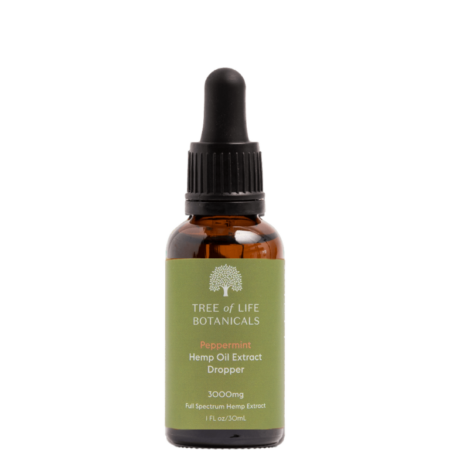
Can ECD Impact My Health?
Exploring the Role of Endocannabinoid Deficiency
In the world of health and wellness, we often hear about vitamin deficiencies – like the famous vitamin D deficiency, which can leave us feeling less than our best. But have you ever heard of ECD? No, it’s not a typo; it stands for Endocannabinoid Deficiency. Just like other deficiencies, it can have a significant impact on your health and well-being. In this article, we’ll take a closer look at what ECD is, how it can affect your health, and how CBD, especially full-spectrum CBD oil, can come to the rescue.
Understanding Endocannabinoid Deficiency (ECD)
Let’s break it down into simple terms. To grasp the significance of ECD, let’s first understand the endocannabinoid system (ECS). Your body has a remarkable system known as the endocannabinoid system (ECS). Think of it as your internal balancing act. It plays a crucial role in maintaining various physiological functions, from mood regulation to sleep patterns, and even how you perceive pain.
- Endocannabinoids: These are naturally occurring compounds in your body, similar in structure to cannabinoids found in the cannabis plant. They include anandamide and 2-arachidonoylglycerol (2-AG).
- Receptors: The ECS has two primary receptors, CB1 and CB2, scattered throughout your body, from your brain to your immune cells. These receptors are like locks waiting to be engaged by endocannabinoids.
- Enzymes: Enzymes like FAAH (fatty acid amide hydrolase) break down endocannabinoids once they’ve served their purpose.
Now, Here’s Where ECD Comes Into Play:
ECD, put simply, is when your body doesn’t produce or regulate enough endocannabinoids (the naturally occurring compounds that interact with the ECS) effectively. This deficiency can disrupt the delicate balance within your body, potentially leading to a range of health issues. To draw a parallel, think of ECD as a Vitamin D deficiency – just as your body needs Vitamin D for various functions, it also needs a healthy ECS for overall well-being.
The Health Implications of ECD
The endocannabinoid system (ECS) is a complex network of receptors, enzymes, and endogenous ligands (endocannabinoids) that play a pivotal role in maintaining the body’s homeostasis. When this system is out of balance, as seen in Endocannabinoid Deficiency (ECD), it can have profound implications for one’s health.
Neurological Disorders
The ECS is deeply involved in the regulation of various neurological processes, including mood, memory, and pain perception. ECD has been linked to several neurological conditions:
- Migraines: Research suggests that individuals with migraines might have statistically significant differences in cerebrospinal fluid anandamide levels, indicating a potential ECS dysfunction.
- Fibromyalgia: This condition, characterized by widespread musculoskeletal pain, is associated with ECD. Patients often experience heightened pain sensitivity, possibly due to an underlying endocannabinoid deficiency.
Gastrointestinal Issues
The ECS plays a role in modulating gastrointestinal (GI) propulsion, secretion, and inflammation. ECD can potentially lead to:
- Irritable Bowel Syndrome (IBS): A functional disorder affecting GI pain, spasms, and bowel movements. The potential relationship between IBS and the ECS suggests that ECD might play a role in its pathogenesis.
Cardiovascular Concerns
The role of the ECS in cardiovascular health is intricate. For instance:
- Blood Pressure and Heart Rate: Activation of CB1 receptors can lead to hypotension, while CB2 receptor signaling may offer cardioprotective effects.
- Acute Coronary Syndrome (ACS): Marijuana use and synthetic cannabinoids have been associated with cardiovascular effects, including an increased risk of ACS.
Mental Health Implications
The ECS’s role in mood regulation suggests that ECD might be linked to various mental health disorders:
- Anxiety and Depression: ECD might exacerbate symptoms of anxiety and depression, given the ECS’s involvement in mood regulation.
- Post-Traumatic Stress Disorder (PTSD): There’s evidence of ECS hypofunction in PTSD, suggesting a potential link between ECD and this condition.
Pain Management
ECD can potentially exacerbate chronic pain conditions due to the ECS’s role in pain perception. This is evident in conditions like fibromyalgia and migraines, where patients often display heightened pain sensitivity.
Metabolic Implications
The ECS is involved in energy balance and metabolism. ECD might play a role in:
- Obesity and Metabolic Syndrome: Modulating ECS activity has shown potential therapeutic applications in obesity and metabolic syndrome, although with mixed results.
The health implications of ECD are vast and varied, affecting multiple systems and processes in the body. As research continues, our understanding of ECD and its impact on health will undoubtedly expand, offering new insights and potential therapeutic avenues.
The Benefits of Addressing ECD
Endocannabinoid Deficiency (ECD) is a relatively new concept in the world of medical science, but its implications are vast. Addressing ECD can lead to a myriad of health benefits, enhancing the quality of life for many individuals. Here’s a deeper dive into the advantages of addressing this deficiency:
- Alleviation of Chronic Pain: One of the most significant benefits of addressing ECD is the potential relief from chronic pain. Conditions like migraine, fibromyalgia, and irritable bowel syndrome, which are believed to be linked to ECD, often manifest as chronic pain syndromes. By addressing the underlying endocannabinoid deficiency, patients might experience reduced pain intensity and frequency.
- Improved Sleep Patterns: Sleep disorders, often associated with conditions like fibromyalgia, might be related to ECD. Addressing this deficiency can lead to better sleep quality and duration, allowing individuals to feel more rested and rejuvenated.
- Enhanced Mood and Mental Health: The ECS plays a crucial role in mood regulation. Addressing ECD can potentially help in alleviating symptoms of depression, anxiety, and other mood disorders. This can lead to improved mental well-being and a more positive outlook on life.
- Better Digestive Health: The endocannabinoid system has a role in modulating gastrointestinal propulsion, secretion, and inflammation. Addressing ECD can potentially offer relief to those suffering from conditions like irritable bowel syndrome (IBS), leading to improved digestive health.
- Reduced Inflammation: Inflammation is a common response to various diseases and conditions. The ECS, particularly the CB2 receptors, has been implicated in attenuating inflammation. Addressing ECD can lead to reduced inflammation, which is beneficial for conditions like cardiovascular diseases, arthritis, and more.
- Potential Cardiovascular Benefits: The role of endocannabinoids and cannabinoid receptors in cardiovascular health is intricate. Addressing ECD might lead to better cardiovascular health, reducing risks associated with conditions like hypertension and atherosclerosis.
- Holistic Well-being: Beyond the specific health conditions, addressing ECD can lead to an overall sense of well-being. The ECS is involved in various physiological processes, from mood regulation to pain control. Ensuring its optimal function can lead to a more balanced and harmonious state of health.
- Neuroprotective Effects: The endocannabinoid system has shown the potential to play a protective role in neurodegenerative disorders. Addressing ECD could potentially slow the progression of conditions like Alzheimer’s, Parkinson’s, and Multiple Sclerosis. This neuroprotective capacity can lead to improved cognitive function and a delay in the onset of neurodegenerative symptoms.
- Enhanced Immune Response: The ECS plays a role in modulating the immune system. Addressing ECD can lead to a more balanced immune response, potentially reducing the risk of autoimmune diseases and enhancing the body’s ability to fight off infections. This means fewer sick days and a more robust defense against common pathogens.
How Can CBD Help With ECD?
CBD, or cannabidiol, has gained immense popularity in recent years due to its potential therapeutic benefits. When shopping for CBD products, you might come across terms like “full-spectrum,” “broad-spectrum,” and “CBD isolate.” Among these, full-spectrum CBD oil stands out for its holistic approach to harnessing the cannabis plant’s benefits. Let’s delve deeper into what full-spectrum CBD oil is and why it’s unique.
What is full-spectrum CBD oil?
Full-spectrum CBD oil is derived from the cannabis plant and contains all the cannabinoids present in the plant, including CBD (cannabidiol), THC (tetrahydrocannabinol), and many others. Unlike CBD isolates, which contain only CBD, full-spectrum CBD oil retains all the therapeutic compounds of the plant, including essential oils, terpenes, and other cannabinoids.
The “Entourage Effect”
One of the primary reasons full-spectrum CBD oil is believed to be more effective in addressing ECD is due to the “entourage effect.” This term refers to the synergistic interaction of all the compounds in cannabis when taken together. In essence, the combined effect of all the cannabinoids, terpenes, flavonoids, and other compounds is greater than the sum of their individual effects.
For instance, while CBD has its therapeutic properties when combined with other cannabinoids and compounds in the Full-Spectrum oil, its efficacy can be enhanced. This synergy can lead to better pain management, mood regulation, and overall ECS support.
Addressing ECD with full-spectrum CBD oil
- Enhanced Receptor Binding: The ECS consists of receptors like CB1 and CB2. full-spectrum CBD oil, with its array of cannabinoids, can bind to these receptors more effectively than CBD alone, ensuring a more comprehensive modulation of the ECS.
- Natural Terpenes: Full-spectrum CBD oil contains terpenes, which are aromatic compounds found in many plants, including cannabis. Terpenes not only contribute to the flavor and aroma of CBD oil but also have therapeutic properties of their own. Some terpenes have anti-inflammatory, anti-anxiety, and analgesic properties, which can further support the ECS.
- Balanced THC Levels: While full-spectrum CBD oil does contain THC, it’s usually in very low, non-psychoactive amounts (typically less than 0.3%). This trace amount of THC can enhance the therapeutic effects of CBD without causing a “high.”
- Holistic Approach: By addressing ECD with full-spectrum CBD oil, one adopts a holistic approach to health. Instead of just supplementing with one compound (like in CBD isolates), you’re providing your body with a range of beneficial compounds that work in harmony.
Considerations When Choosing full-spectrum CBD oil
- Legal Status: Always check the legal status of THC in your region, as full-spectrum CBD oil contains trace amounts of this compound.
- Drug Testing: If you’re subject to drug testing, be cautious. Even trace amounts of THC could show up in a drug test.
- Personal Preference: Some individuals might prefer CBD isolate or broad-spectrum CBD (which contains other cannabinoids but no THC) due to personal preferences or specific health concerns.
Lifestyle Changes to Support ECD
Endocannabinoid Deficiency (ECD) can have profound effects on one’s well-being. While treatments like CBD offer promise, lifestyle changes can also play a pivotal role in supporting a healthy endocannabinoid system (ECS). Here are some lifestyle modifications that can potentially bolster the ECS and mitigate the effects of ECD:
- Diet Matters: Just as a balanced diet is essential for overall health, certain foods can support your endocannabinoid system. Omega-3 fatty acids, found in fish, flaxseeds, and walnuts, are precursors to endocannabinoids. Incorporating them into your diet can support endocannabinoid production. Vegetables like broccoli and Brussels sprouts contain beta-caryophyllene, a dietary cannabinoid that can stimulate CB2 receptors.
- Stress Management: Chronic stress can impair the ECS. Techniques such as meditation, deep breathing exercises, and journaling can help manage stress and support the ECS.
- Adequate Sleep: Sleep is crucial for a balanced ECS. Endocannabinoid levels can fluctuate with sleep patterns. Ensuring 7-9 hours of quality sleep can help maintain optimal endocannabinoid levels.
- Limiting Caffeine: While moderate caffeine can be beneficial, excessive intake can interfere with the ECS. It’s advisable to monitor caffeine consumption and limit it if necessary.
- Regular Exercise: Physical activity is known to stimulate the production of endocannabinoids, enhancing the “runner’s high” many people feel after a workout. Whether it’s a brisk walk, yoga, or more intense activities like running or cycling, find a routine that suits you.
The Road to Wellness
In the grand scheme of things, endocannabinoid deficiency, or ECD, is an important concept to understand when it comes to your health. Just like any other deficiency, addressing it can lead to significant improvements in your well-being.
If you suspect you might be dealing with ECD and its associated health issues, CBD, especially full-spectrum CBD oil, can be a valuable tool in your wellness toolkit. However, it’s crucial to consult with a healthcare professional before starting any new dietary or lifestyle regimen, including CBD.
Remember, your health is a journey, and every step you take towards balance and well-being is a step in the right direction. ECD may be a challenge, but with the right approach and the potential benefits of CBD on your side, you can navigate it with confidence and optimism.
References:
-
- Chye Y, Christensen E, Solowij N, Yücel M. The Endocannabinoid System and Cannabidiol’s Promise for the Treatment of Substance Use Disorder. Front Psychiatry. 2019 Feb 19;10:63. doi: 10.3389/fpsyt.2019.00063. PMID: 30837904; PMCID: PMC6390812. https://www.ncbi.nlm.nih.gov/pmc/articles/PMC6390812/
- Rabino M, Mallia S, Castiglioni E, Rovina D, Pompilio G, Gowran A. The Endocannabinoid System and Cannabidiol: Past, Present, and Prospective for Cardiovascular Diseases. Pharmaceuticals (Basel). 2021 Sep 17;14(9):936. doi: 10.3390/ph14090936. PMID: 34577636; PMCID: PMC8472406. https://www.ncbi.nlm.nih.gov/pmc/articles/PMC8472406/
- Pacher P, Kunos G. Modulating the endocannabinoid system in human health and disease–successes and failures. FEBS J. 2013 May;280(9):1918-43. doi: 10.1111/febs.12260. Epub 2013 Apr 22. PMID: 23551849; PMCID: PMC3684164. https://www.ncbi.nlm.nih.gov/pmc/articles/PMC3684164/
- Meccariello R. Endocannabinoid System in Health and Disease: Current Situation and Future Perspectives. Int J Mol Sci. 2020 May 18;21(10):3549. doi: 10.3390/ijms21103549. PMID: 32443408; PMCID: PMC7278997. https://www.ncbi.nlm.nih.gov/pmc/articles/PMC7278997/
- Russo EB. Clinical Endocannabinoid Deficiency Reconsidered: Current Research Supports the Theory in Migraine, Fibromyalgia, Irritable Bowel, and Other Treatment-Resistant Syndromes. Cannabis Cannabinoid Res. 2016 Jul 1;1(1):154-165. doi: 10.1089/can.2016.0009. PMID: 28861491; PMCID: PMC5576607. https://www.ncbi.nlm.nih.gov/pmc/articles/PMC5576607










